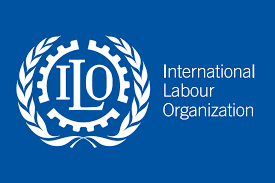
Renewable Energy Jobs Hit 16.2 million – Report
A new study shows that jobs in the renewable energy industry have surged to 16.2 million, marking the highest annual growth rate on record.
The newly released Renewable Energy and Jobs—Annual Review 2024 from the International Renewable Energy Agency and the International Labour Organisation indicated that 2023 saw the largest-ever increase in renewable energy jobs, from 13.7 million in 2022 to 16.2 million.
The report indicated that the 18 per cent year-on-year leap reflected the strong growth of renewables generating capacity and the continued expansion of equipment manufacturing.
However, a closer look at the report’s data shows an uneven global picture. Nearly two-thirds of new global solar and wind capacity installed last year were in China.
China leads with an estimated 7.4 million renewable energy jobs or 46 per cent of the global total. The European Union was next, with 1.8 million jobs, followed by Brazil with 1.56 million jobs, and the United States and India with close to one million jobs each.
The strongest impetus continued to come from the rapidly growing solar photovoltaics sector, which supported 7.2 million jobs globally.
Of these, 4.6 million were in China, the dominant PV manufacturer and installer. Enabled by significant Chinese investments, Southeast Asia has emerged as an important export hub of solar PV, creating jobs in the region.
Liquid biofuels ranked second in global energy jobs, with Brazil leading at one-third of the sector’s 2.8 million jobs, followed by Indonesia with a quarter.
Meanwhile, hydropower saw a decline, with jobs falling from 2.5 million in 2022 to 2.3 million. Brazil, China, India, Pakistan, and Vietnam were the largest employers in hydropower.
In the wind sector, China and Europe remain dominant. As leaders in turbine manufacturing and installations, they contributed 52 per cent and 21 per cent, respectively, to the global total of 1.5 million jobs.
Despite immense resource potential, the report indicated that Africa continues to receive only a small share of global renewables investment, which translated into a total of 324,000 renewables jobs in 2023.
“In regions like Africa, where reliable energy is urgently needed, especially in remote areas, decentralized renewable energy systems offer a chance to bridge the energy gap and create jobs.
“Removing barriers for women to launch businesses in DRE can boost the sector, strengthen local economies, and promote energy equity,” the report said.
The IRENA Director-General, Francesco La Camera, said, “If we are all to fulfil our collective pledge to triple renewable power capacity by 2030, the world must step up its game and support marginalised regions in addressing barriers impeding their transition progress.
“Strengthened international collaboration can mobilise increased finance towards policy support and capacity building in countries that are yet to benefit from renewables job creation.”
Also, the ILO Director-General, Gilbert Houngbo, said, “Investing in education, skills, and training helps reskill all workers from fossil fuel sectors, address gender and other disparities, and prepare the workforce for new clean energy roles,”
“It is essential if we are to equip workers with the knowledge and skills that they need to get decent jobs and to ensure that the energy transition is a just and sustainable one. A sustainable transition is what the Paris Agreement requires of us and what we committed to achieving when we signed up to the agreement.”
